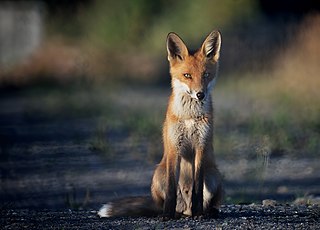Fryer is a surname. Notable people with the surname include:
Stephens is a surname. It is a patronymic and is recorded in England from 1086.
Myers as a surname has several possible origins, e.g. Old French mire ("physician"), Old English maire ("mayor"), and Old Norse myrr ("marsh").
Watt is a surname of British origin. It is thought to originate from either the Anglo-Saxon name Watt or the Middle English nickname, Wat(t), a short form of Walter. Notable people with the surname include:
Boyd is an ancient Scottish surname.

Abbott is an English surname, derived from the word "abbot", which may refer to:
Gray is a surname of English and Scottish origins.
Graham is a surname of Scottish and English origin. It is typically an Anglo-French form of the name of the town of Grantham, in Lincolnshire, England. The settlement is recorded in the 11th century Domesday Book variously as Grantham, Grandham, Granham and Graham. This place name is thought to be derived from the Old English elements grand, possibly meaning "gravel", and ham, meaning "hamlet" the English word given to small settlements of smaller size than villages.
Abel can be either a German or English surname. The German variant of the surname is a patronymic name, derived from the Old German personal name Abel, which means "noble one." Interestingly, the German variation does not appear to be derived from the biblical name Abel. The surname is associated with Swabia, in the southwest of Germany.
Howe is an English surname. Howe, when derived from the Old Norse: haugr, means hill, knoll, or mound and may refer to a tumulus, or barrow. However, when derived from Old English: hol, it can refer to a hollow or dell. Historically the surname was most commonly found in the Northeast of England and the Orkney and Shetland islands.
Kent is a surname. Notable people with the name include:
Thornton is a surname found in Ireland and Britain.
Walters is a surname of English origin. It used to denote "Son of Walter", derived from the given name Walter, which was introduced into England and Wales about the time of the Norman Conquest. The name "Walter" originates from the Old German wald ("rule") + heri ("warrior").
Willis is a surname of English, Norman French, and Scottish origin. The oldest extant family of the name, the Willes family of Warwickshire, formerly of Newbold Comyn and Fenny Compton, has used the spellings 'Willis,' 'Willys,' and 'Wyllys' and appear in records from 1330. In this case, the name derives from the name de Welles which comes from the Norman name de Vallibus, which in turn was derived from the Vaux family tree. The Vaux family, established in England by Harold de Vaux, a close relative of William the Conqueror, appears in French records from 794. They had held power in their own right and through royal intermarriages.
Thomson is a patronymic surname meaning "son of Thom, Thomp, Thompkin, or other diminutive of Thomas", itself derived from the Aramaic תום or Tôm, meaning "twin". The surname is documented in Cheshire records before and after the 1066 Norman Conquest. Variations include Thomason, Thomasson, Thomerson, Thomoson, and others. The French surname Thomson is first documented in Burgundy and is the shortened form for Thom[as]son, Thom[es]son. Variations include Thomassin, Thomason, Thomsson, Thomesson, Thomeson, and others. Thomson is uncommon as a given name.
Harrington is an English habitational name from places in Cumbria, Lincolnshire, and Northamptonshire. It is also a common surname in southwest Ireland, where it was adopted as an Anglicized form of the Gaelic surnames Ó hArrachtáin and Ó hIongardail. Notable people with the surname include:
Bowie is a Scottish and Irish surname. The name can be derived from the Gaelic nickname buidhe, meaning "yellow", "fair-haired". The surname can also be an Anglicised form of the Irish surname Ó Buadhaigh; this surname means "descendant of Buadhach" and is also rendered as Bogue and Boyce. The personal name Buadhach means "victorious". The surname Bowie is rendered in Scottish Gaelic as Buidheach (masculine) and Bhuidheach (feminine), as well as Mac'IlleBhuidhe (masculine) and Nic'IlleBhuidhe (feminine). Early instances of the surname in Scotland, recorded in 1481, are: Boye, Bowy, and Boee.

Fox is a surname originating in England and Ireland. The derivation is from the Middle English "fox", itself coming from the Old English pre 7th century "fox". The surname first appears on record in the latter part of the 13th century, with the first recorded spelling in 1273 to be that of John Fox in the "Hundred Rolls of Yorkshire", England. In Ireland, Fox is mainly a translation of the Old Gaelic "Mac a'tSionnaigh".
Richard can be a surname. Variations include: Ricard, Riccard(s), Richard(s), Ritchard, Richardson, Richardsson, Ricquart, Rijkaard, Rickaert, Ryckewaert
Berry is a surname with numerous etymological origins.
The surname “Fryar” has its earliest origins in medieval England, first appearing in the 14th century. The name was also found in Lothian where they were seated from early recorded times and their first records appear on the census rolls taken by the early Kings to determine the rate of taxation of their subjects. The name was given to a person who was a friar. The surname Fryar was derived from the old French word "frère", which means "brother" in English and dates from the 13th century. The French word "frère" in turn comes from the Latin word "frater", which also means "brother". One reason for the variation in spelling is that medieval English lacked definite spelling rules. Names were rarely spelled consistently during these times when most people were illiterate. Scribes and church officials recorded names as they sounded, rather than adhering to specific rules and consequently, the variant surname Fryar first appeared.